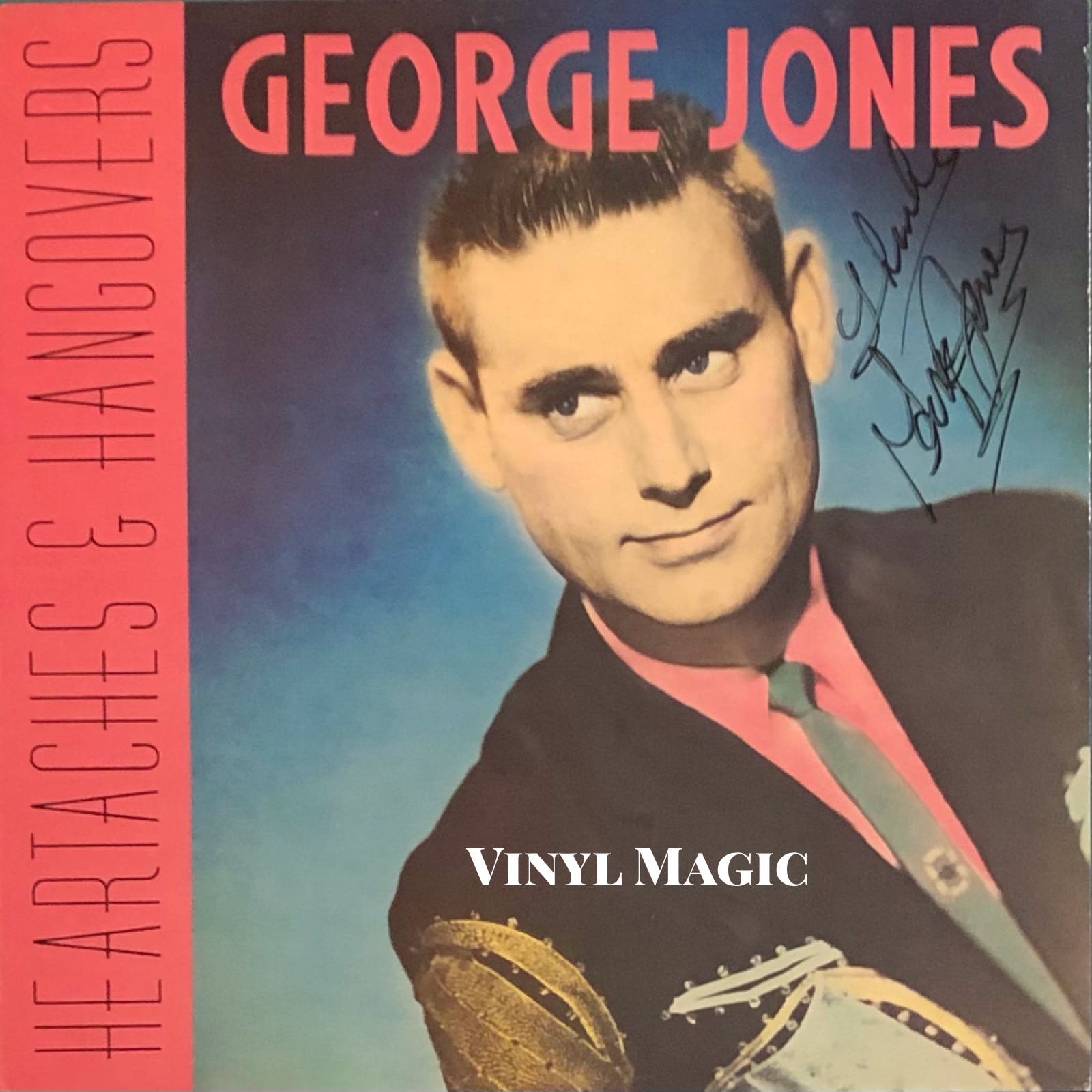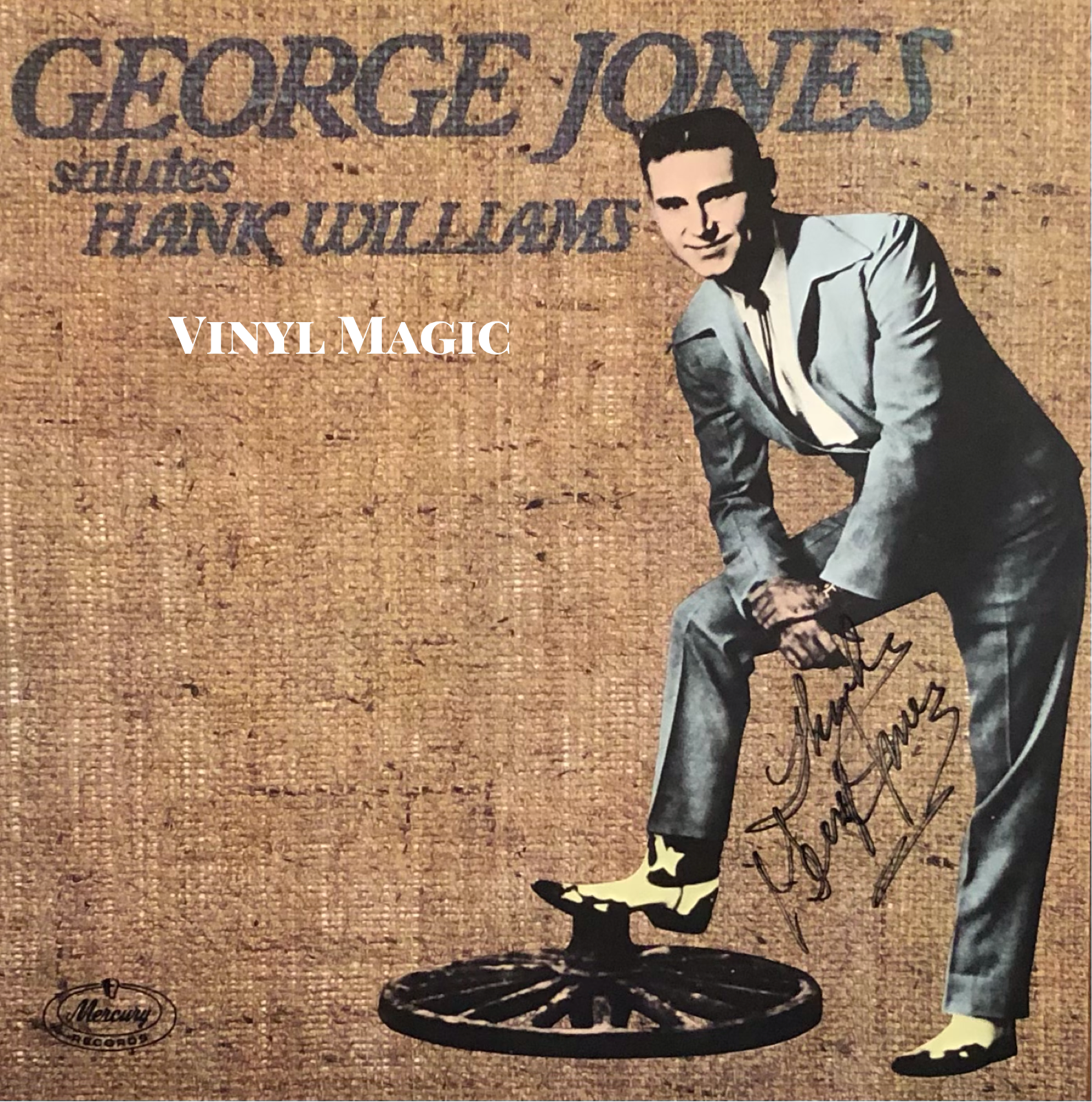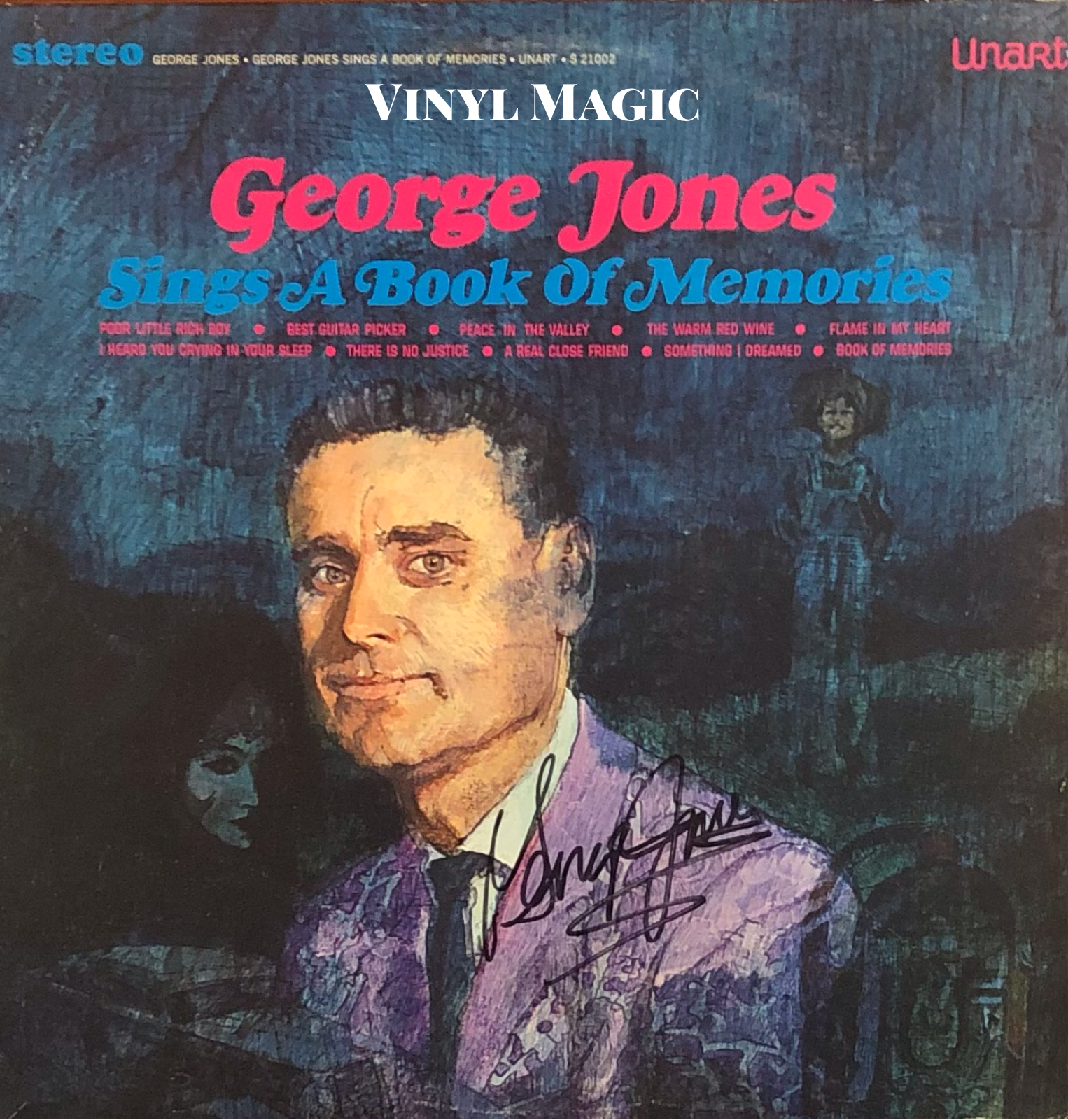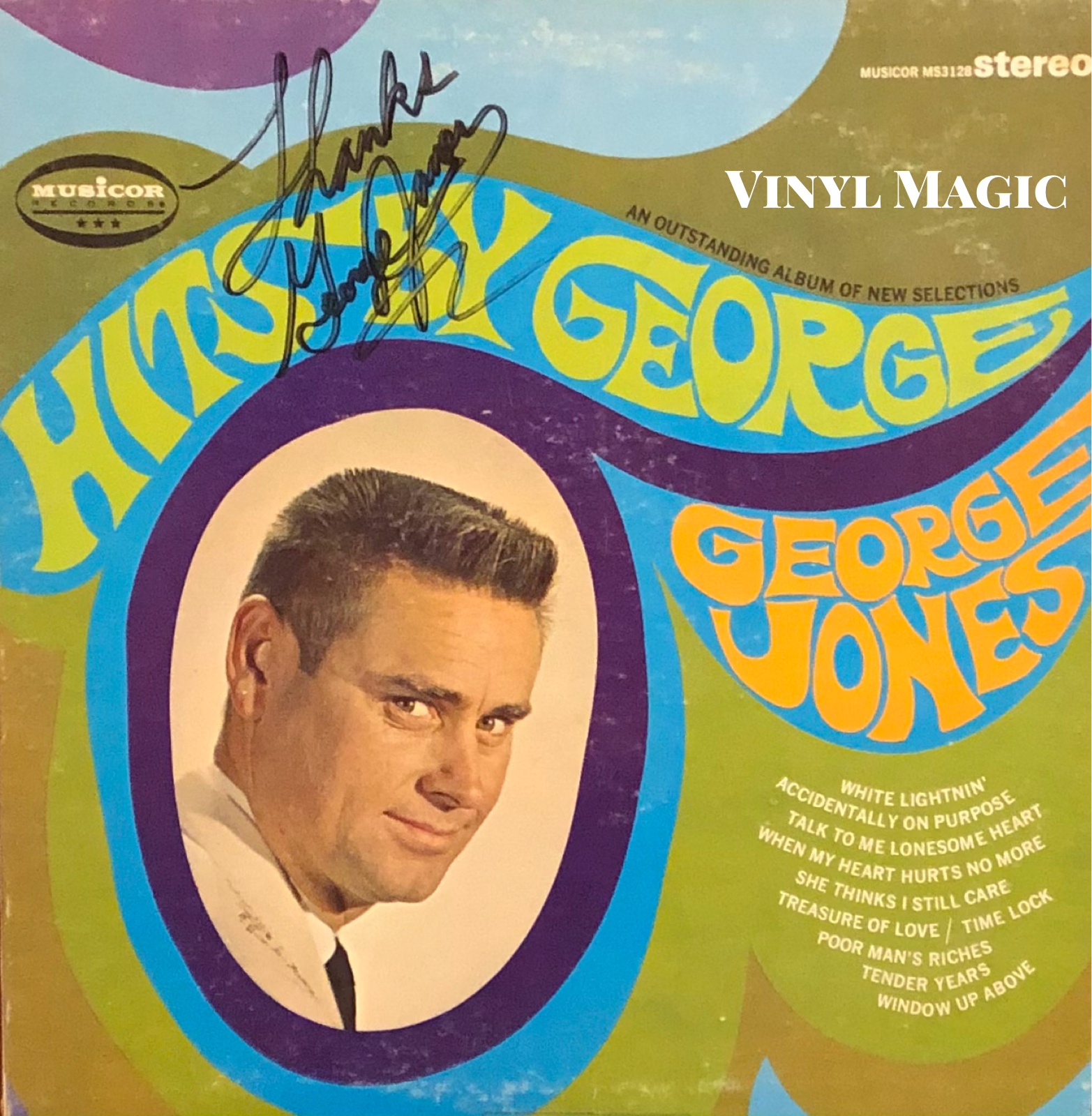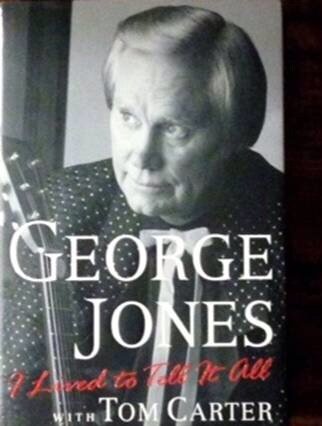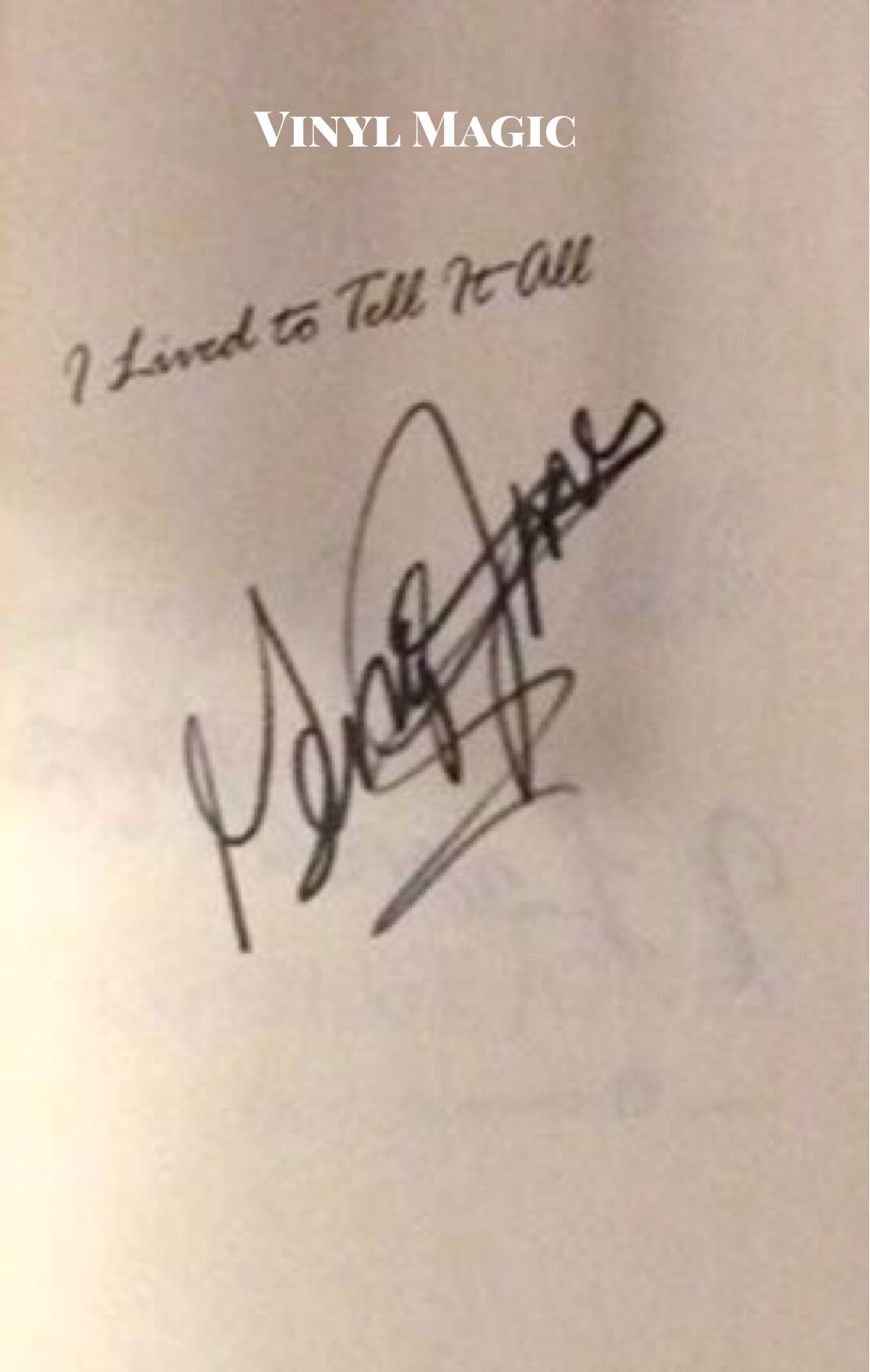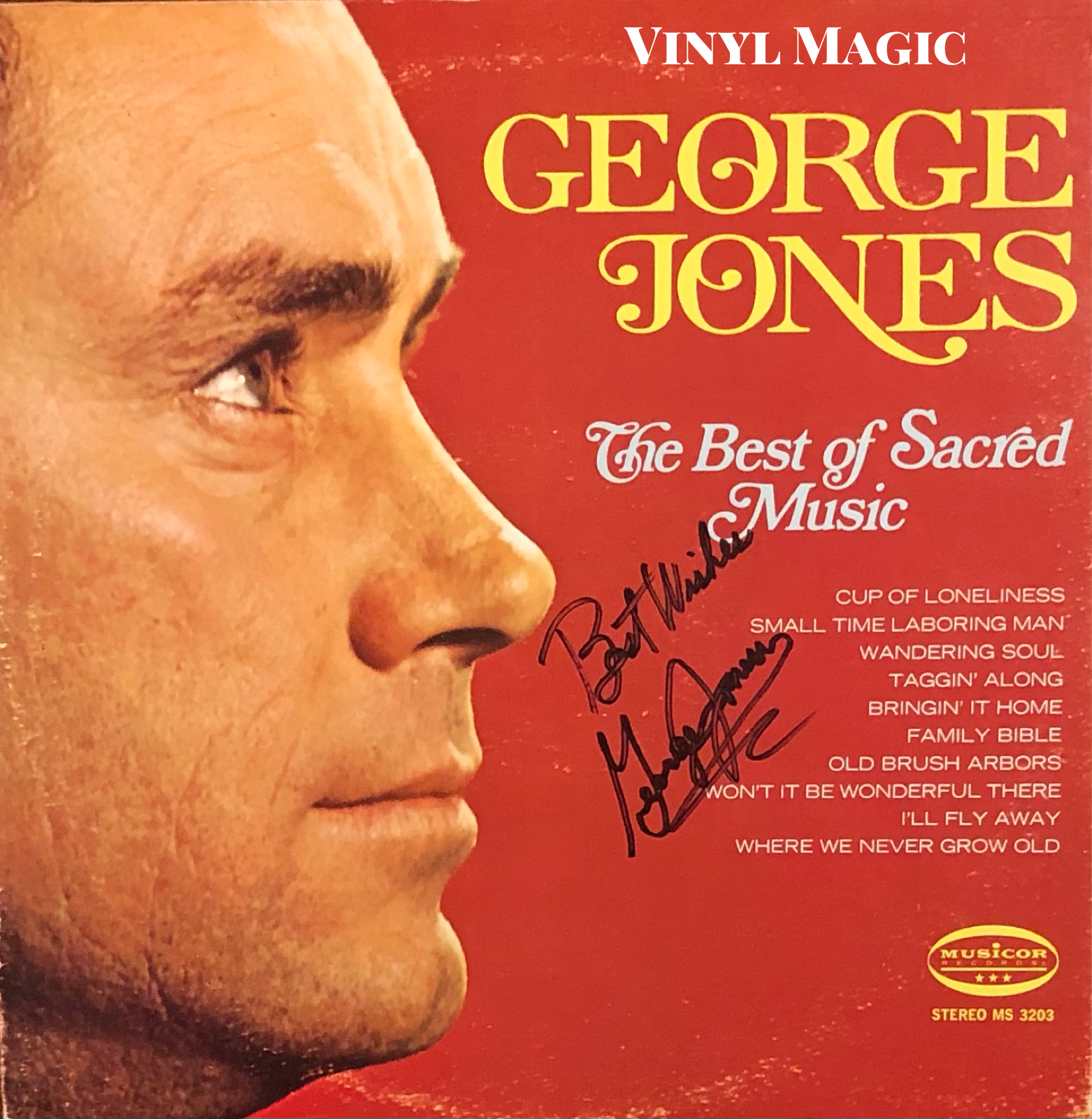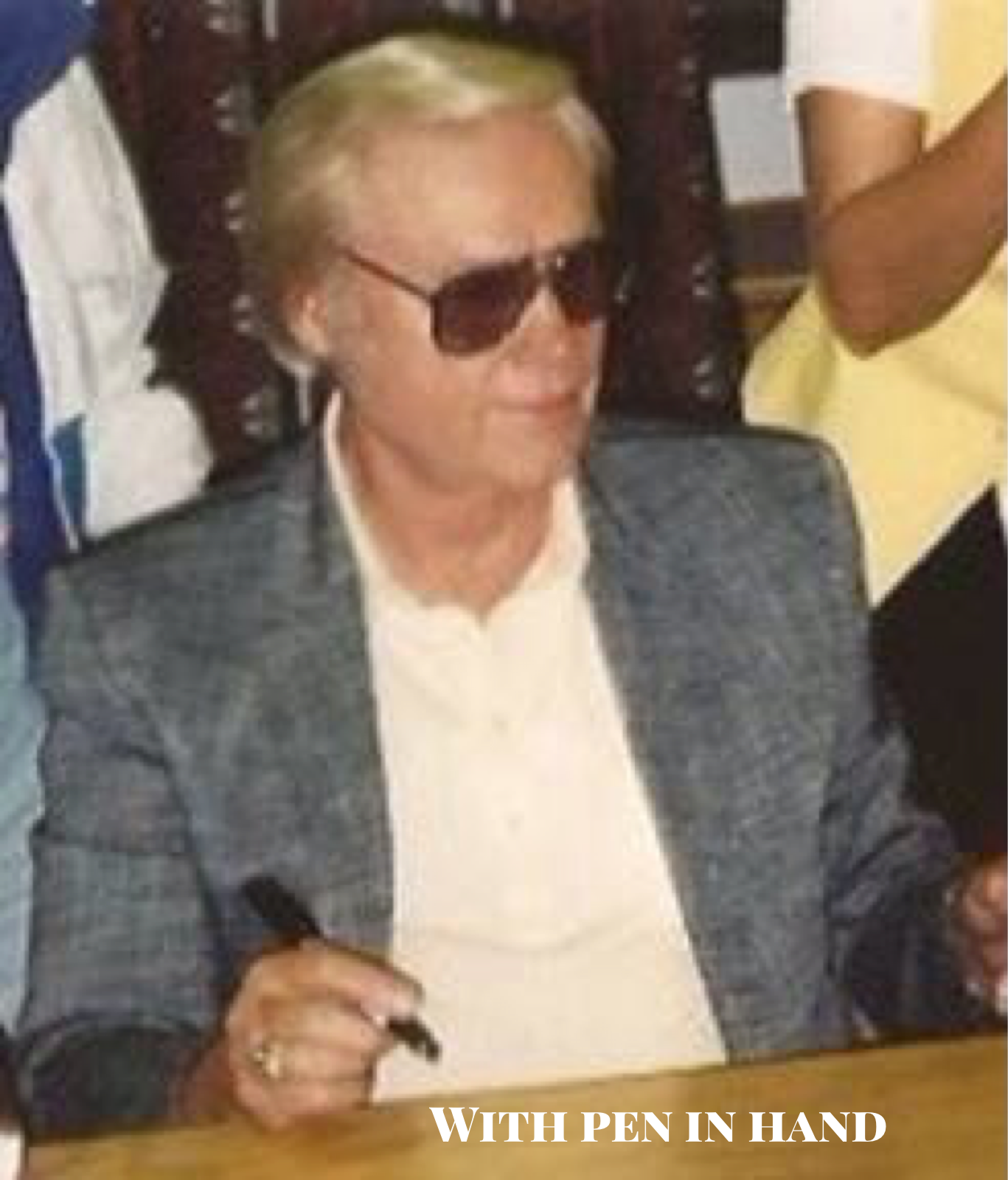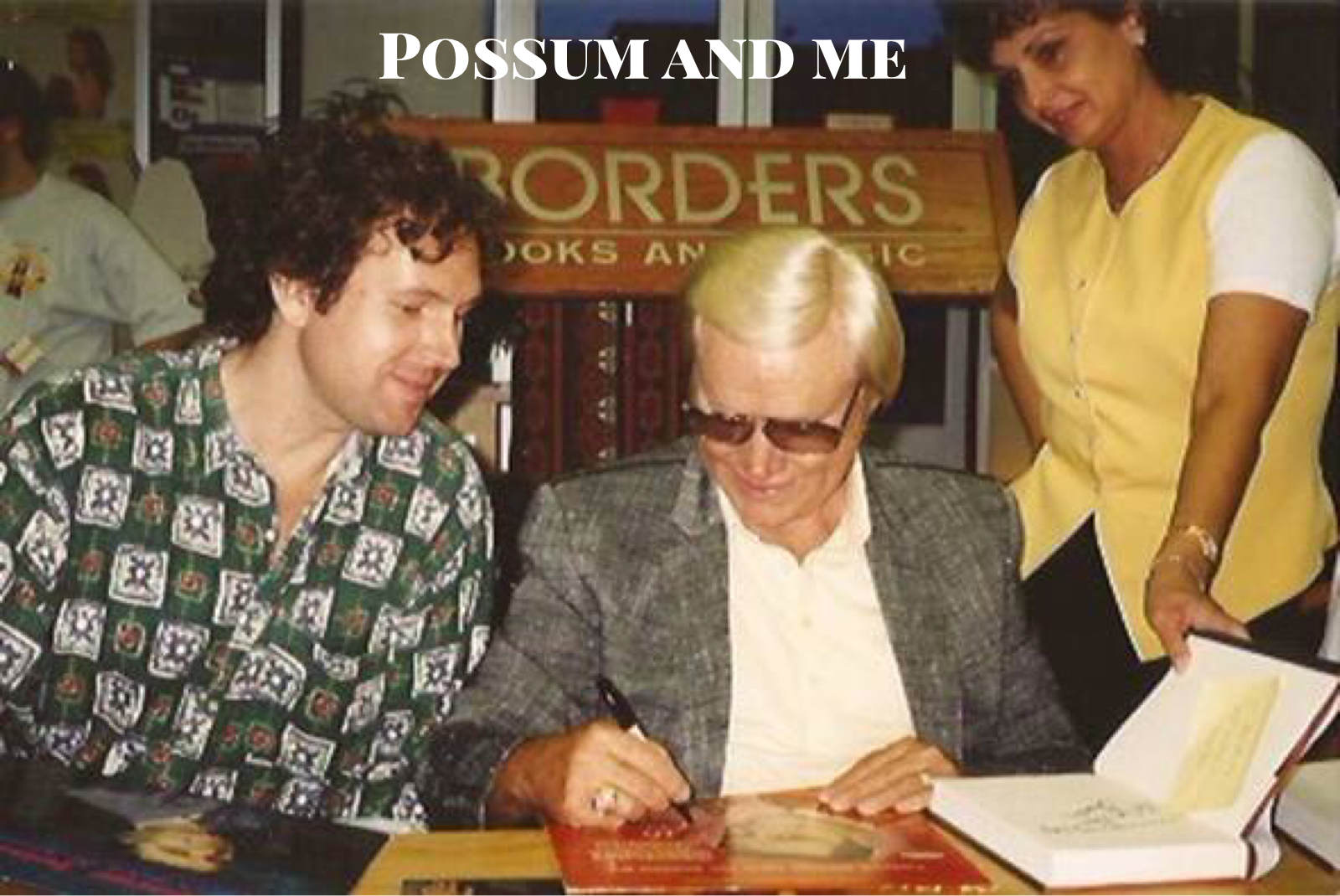George Jones and Me...
For me, liquor went with country music real naturally, especially inside those Texas honky-tonks. We did what we did and we didn’t care who knew it. It hurt our careers, but we weren’t in the music business primarily for careers. We were in it for the music and because its pace and schedule allowed us to live the way we wanted. It’s easy to get drunk and chase women when you’re working on the road. It isn’t that easy for men who have to come home at a certain time every night.
George Jones
To let In Mind (1965) signed by George
Once, when I had been drunk for several days, Shirley decided she would make it physically impossible for me to buy liquor. I lived about eight miles from Beaumont and the nearest liquor store. She knew I wouldn't walk that far to get booze, so she hid the keys to every car we owned and left. But she forgot about the lawn mower. I can vaguely remember my anger at not being able to find keys to anything that moved and looking longingly out a window at a light that shone over our property. There, gleaming in the glow, was that ten-horsepower rotary engine under a seat. A key glistening in the ignition. I imagine the top speed for that old mower was five miles per hour. It might have taken an hour and a half or more for me to get to the liquor store, but get there I did.
George Jones
A Taste Of Yesterday’s Wine (1982) signed by George and Merle
I met him at the Blackboard Café in Bakersfield, California, which was the place to go in '61. He was already famous for not showing up or showing up drunk, and he showed up drunk. I was onstage - I think I was singing Marty Robbins' 'Devil Woman' - and he kicked the doors of the office open and said 'Who the fuck is that?' It was one the greatest compliments of my entire life when George Jones said I was his favorite country singer.
Merle Haggard on George Jones
When you’re called ‘The Possum’ …there’s no way I can ever live it down. T. Tommy Cutrer was a disc jockey. Everybody loved him. He was one of the old-timers on the all-night shows along with Ralph Emery, and those two got started calling me ‘The Possum.’ I had an album out with a side view of me with a crew cut. I was very young, and my nose looked more turned up, and I’ve got little beady eyes so I guess I did look like a possum! So they both laid into me and called me ‘Possum,’ and it got everywhere.
George Jones
Heartaches & Hangovers (1984 reissue)
George Jones is simply the greatest country singer who ever lived. Don't take my word, ask Johnny, Frank, Waylon, or James.
When people ask me who my favorite country singer is, I say, ‘You mean besides George Jones?
Johnny Cash
The second best singer in America.
Frank Sinatra
If we all could sound like we wanted to, we’d all sound like George Jones.
Waylon Jennings
He sounds like a steel guitar. It's the way he bends notes, the way he comes up to them, the way he crescendos and decrescendos. The dynamic of it is very tight and very controlled - it's like carving with the voice.
James Taylor
Salutes Hank Williams (1960) signed by George
Born in the hard scrabble Texas town of Sarasota, George Jones grew up with an abusive, alcoholic father. Many nights when his father came home hammered, he would force young George to sing. It was either singing or beatings. A tough way to hone his song craft, but George became a singer. As he observed in his autobiography I Lived To Tell It All, "The Jones family makeup doesn't sit well with liquor...Daddy was an unusual drinker. He drank to excess but never while working, and he probably was the hardest working man I've ever known." George's hero was Hank Williams, and he started busking on nearby Beaumont streets when he was nine or ten years old. George said, "I couldn't think or eat nothin' unless it was Hank Williams, and I couldn't wait for his next record to come out. He had to be, really, the greatest."
Twelve year old George busking in Beaumont
George left home at sixteen, worked at KTXJ, a radio station in Jasper, Texas, and then at KRIC in Beaumont. In 1954, He recorded his first single on Jack Starnes and Pappy Dailey's Starday Records, with the prescient title "No Money In This Deal." George explained his less than optimal recording experience:"It was a terrible sound. We recorded in a small living room of a house on a highway near Beaumont. You could hear the trucks. We had to stop a lot of times because it wasn't soundproof, it was just egg crates nailed on the wall and the big old semi trucks would go by and make a lot of noise and we'd have to start over again."
Blue & Lonesome (1964) signed by George
George had his first hit record with "White Lightnin' " in 1959. George was so drunk it took nearly eighty takes to master the hillbilly moonshine ode of two minutes and thirty-six seconds. Buddy Killen, his bass player, was so incensed (and his hands so inflamed) that he threatened to throttle George. The take that producer Don Pierce liked best had a slight imperfection as George slurred "slug." For the next fifty years, George would mimic this slur thousands of times while performing his Number One hit song. And Buddy Killlen fared all right too. He sold his publishing company ATV (country music's largest) to Sony for $30 million in 1989, and started Killen Music Group which published Outkast, among other artists in the 2000s.
Sings A Book Of Memories (1967) signed by George
George had thirteen Number One hits, seventy-eight Top Ten hits, and a brilliant recording career but he was often irresponsible when he was drinking. In 1977, he was scheduled to play The Bottom Line in New York City to a VIP crowd as a showcase for his label, Epic Records. George showed up for a meeting with his producer in the afternoon then promptly disappeared for three weeks. There was no social media or tracking devices in those days, George was gone. Despite his considerable talent, promoters would not book George because they were never sure if he would show up. As a response in 1982, George co-wrote "No Show Jones", with the telling lyrics, "They call me No Show Jones, I'm seldom on, instead of just singin' my songs, my whereabouts are unknown, they call me No Show Jones."
Greatest Hits (1961) signed by George
I met George Jones a couple of times. In the early 1980s, George was in bad shape, the booze and drugs were destroying him and he kept missing shows. As a make up, WAMU, a country radio station in Washington, DC sponsored a signing with "The Possum" at a nearby restaurant before a Merriweather Post Pavilion show. There was a line of fans waiting, and there was a lot of grousing whether George would show up at 3pm, or would he be somewhere else on a bender. It was a tough call in those days, odds were favoring a bender. Just then, George came sauntering down the hill dressed in his country stage regalia, and took his place behind a counter to meet his fans and sign autographs. His demons were in abeyance that afternoon, and George was a southern gentleman, friendly and courtly.
Hits By George (1967) signed by George
In concert, George's musical performance was stunning, his singing powerful and his phrasing uncommon. It was lifted from one of his heroes, Lefty Frizzell. George admitted, "I got that (phrasing) from Lefty. He always made five syllables out of one damn word." George sang his hits: "White Lightnin' ", "The Window Up Above", "She Thinks I Still Care", "The Race Is On", and "The Grand Tour." The encore, "He Stopped Loving Her Today", is considered the greatest country music song and performance, a song George almost didn't record. When he finished the recording in 1980, George reportedly said to his producer Billy Sherrill, "Nobody will ever buy that morbid son of a bitch." George was wrong. It won a Grammy and the CMA Song of the Year in 1980 and 1981, and as he said later, this three minute song salvaged a four decade old career.
I Lived To Tell It All (1996)
George Orwell once said that "autobiography is the most outrageous form of fiction." He clearly had read the George Jones memoir, I Lived To Tell It All (1996), a story of almost complete dissipation, George did so much cocaine and booze that he started to speak in voices. Two distinct voices, "The Old Man" (patterned after the curmudgeonly actor Walter Brennan) and "The Duck" (as in Donald). The greatest singer in country music was reduced to a babbling fool ravaged by the rapacious and ruthless creditor that is drugs and alcohol. In 1978 and 1979, George "lived" at the Spence Manor Hotel and The Hall Of Fame Motor Lodge in Nashville, both popular havens for visiting tourists. George would play on the street, disheveled and dissolute, almost unrecognizable as the country music superstar he was. As George writes in his book, when he was spotted, a tourist might say, " Look over there, That's George Jones. Nah, their companions often answered. That ain't him. That man hasn't had a bath or shaved or nothin'. Besides why would George Jones be sitting out in the sun by himself playing a guitar and singing? That man is a street singer." At his nadir, George was hospitalized (again), he weighed one hundred pounds, his motor skills were shot, he could not perform simple arithmetic, and his IQ was tested at 74. A shocking result, his story is a difficult read and a harrowing tale.
Signed by George
George was composed, relaxed and sober as he sat at the table at the Borders Bookstore in 1996. There was a sign "Only Books Will Be Signed, No Memorabilia." So I bought a book and waited in line. As I got closer, I pulled a couple of records out. Just then a Borders employee accosted me. "What are you doing with those? He's not signing any albums, just books" she scolded. "I know, I just want to show him a couple of his old records," I said innocently. Of course, that was a ruse. I sat down next to George and starting handing him the vinyl covers. One after another. The Border Bookstore crossing guard gave me a scowling glare but not George's wife, Nancy. She was very interested and loved the artwork with the garish and colorful 1960s suits and the buzz cuts George was sporting. They both enjoyed the trip down Possum's vinyl memory lane.
George Jones, mostly sober since his marriage to Nancy in 1983, and the greatest country music singer who ever lived.
The Best Of Sacred Music (1971) signed by George
Sings The Songs Of Dallas Frazier (1968) signed by George
Armed and Dangerous
Possum, Nancy and Me…



